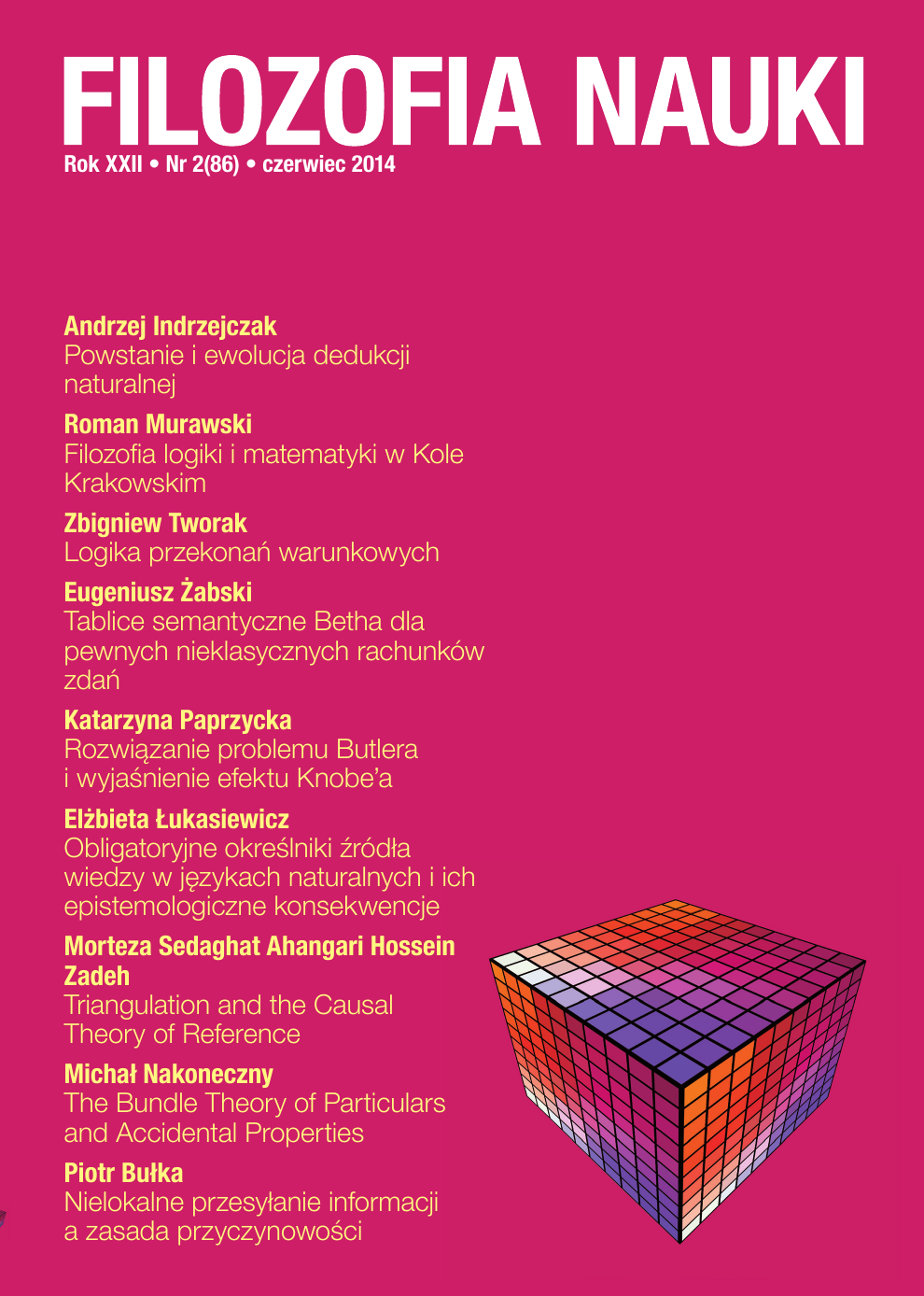Triangulation and the Causal Theory of Reference
Słowa kluczowe:
the causal theory of reference, intention, triangulation, epistemic warrantAbstrakt
In his causal theory of reference, Kripke holds that for the causal chain between the name dubbing ceremony and its current use to be maintained, every name borrower should intend to use the borrowed name to refer to the same thing to which the lender used that name to refer. Evans's Madagascar objection shows that merely having such an intention does not explain cases of referent change. I think that the problem can be solved by requiring that the borrower fix her intended referent with the lender's (or with that of the linguistic community to which the lender belongs). For this requirement to be satisfied, I argue, the borrower must triangulate with the lender to determine the common referent, much in the way Davidson suggests in the case of determining the common content. I claim that a similar strategy is adopted by Kroon in his epistemic warrant theory of reference.Pobrania
Opublikowane
2014-06-01
Jak cytować
Hossein Zadeh, M. S. A. (2014). Triangulation and the Causal Theory of Reference. Filozofia Nauki, 22(2), 117–124. Pobrano z https://www.fn.uw.edu.pl/index.php/fn/article/view/759
Numer
Dział
Artykuły















 Filozofia Nauki | ISSN 1230-6894 | e-ISSN 2657-5868
Filozofia Nauki | ISSN 1230-6894 | e-ISSN 2657-5868